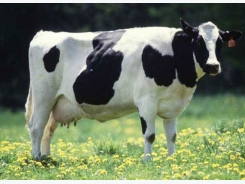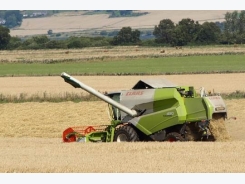Integrated strategies power new future for poultry production

Poultry production evolving rapidly as operations shoulder much longer list of responsibilities.
A new "future of farming" for commercial poultry production is taking shape as veterinarians, nutritionists and industry experts increasingly combine forces to support operations with enhanced integrated strategies for tackling a raft of new sustainability demands and diversified market opportunities, according to an announcement from Poultry Partners in Canada.
“There’s no doubt we have entered an important period of evolution for commercial poultry production that involves much greater complexity to optimize production and align with the expectations of the marketplace,” said veterinarian Dr. Tom Inglis of Poultry Health Services, which is part of Poultry Partners. “The question is, are we up to the challenge? I believe we are, but the old ways will not do. We need to evolve.”
At the farm level, it starts with better teamwork and integrated strategies across different areas of expertise, Inglis said, adding, “We can’t work or think in silos. We need a new level of integration to succeed.”
Poultry Partners has been among those leading the charge toward enhanced integrated approaches through its unique company model that involves cross-disciplinary teamwork and strategies. Poultry Partners offers animal health, nutrition, on-farm management and business development services. It was started as a combined effort between Poultry Health Services, which provides veterinary and health management services, and Nutrition Partners, which offers nutrition options and formulations.
“When we look at many of the big-picture trends that are transforming the industry — for example, the need to reduce reliance on antimicrobials, to enhance animal welfare, to reduce our environmental footprint or to meet the various requirements of new branded retailer programs — they require farms to have a very well integrated, multidisciplinary approach in place to be successful,” Nutrition Partners president Darryl Lewis explained. “Every operation is different and requires a custom approach to reach its full potential. Using an integrated model helps ensure that approach is optimized to deliver the best results for the operation, for the animals and for the marketplace.”
Poultry Partners has seen a sharp spike in business growth across Canada in recent months as its integration-focused model gains traction in the wake of key developments. Examples include new rules restricting antimicrobial use, heightened expectations for animal welfare, rising emphasis on disease prevention versus treatment and a dynamic influx of options and requirements related to new branded programs introduced by major processors and retail brands, the announcement said.
“The world of poultry production is evolving rapidly and the farm gate is ground zero; it’s the place where all the new demands and expectations for poultry production converge,” said Theunis Wessels, Poultry Partners sales and marketing manager. “Today’s operations have to shoulder a much longer list of responsibilities than they did in the past. It’s simply the new normal. Today, we also have much better knowledge, tools and resources. With improved integration across the key areas important to production, we have much better opportunity to ensure every poultry operation can reach its full potential.”
The drive toward improved antimicrobial use strategies is a leading example. Operations looking to comply with new rules restricting antimicrobial use, to reduce reliance on antimicrobials or to transition toward or maintain an antibiotic-free (ABF) system all improve their opportunity for success if their system integrates knowledge and options spanning a number of important areas, such as animal health, nutrition, animal welfare, biosecurity, feed sourcing and more, Poultry Partners said.
In addition to in-house expertise, the Poultry Partners model includes a broad network of collaboration. For example, the company partners with Country Junction Feeds, which was among the first feed mills to achieve ionophore-free, ABF status, ensuring that all feed sourced from its operations is verified to meet the strict requirements of ABF production and related retailer programs.
With headquarters in Airdrie, Alb., and broad networks, the Poultry Health Services component of Poultry Partners recently expanded its office base into Ontario via partnership with South West Ontario Veterinary Services located in Stratford. Poultry Health Services and Poultry Partners clients are supported from the new location.
“In our veterinary work, to better service the industry in today’s environment, there has been a real shift in emphasis from ‘diagnose and treat’ to prevention and surveillance,” Inglis said. “That mindset extends to the Poultry Partners model. It’s about not only integrated health management but really full-spectrum, integrated management involving all key facets of production. The emphasis is on being proactive, aligned and efficient and capturing synergies to minimize risk and take our client operations to new levels of performance, competitiveness and sustainability.”
Poultry Partners is a collaborative effort among veterinarians, nutritionists and industry experts that is designed to support the success of poultry operations through custom programs and services tailored to individual needs.
Related news
Tools

Phối trộn thức ăn chăn nuôi

Pha dung dịch thủy canh

Định mức cho tôm ăn

Phối trộn phân bón NPK

Xác định tỷ lệ tôm sống

Chuyển đổi đơn vị phân bón

Xác định công suất sục khí

Chuyển đổi đơn vị tôm

Tính diện tích nhà kính

Tính thể tích ao



 Agricultural products seek to gain footholds in foreign…
Agricultural products seek to gain footholds in foreign…  Farm sector profitability forecast relatively stable
Farm sector profitability forecast relatively stable